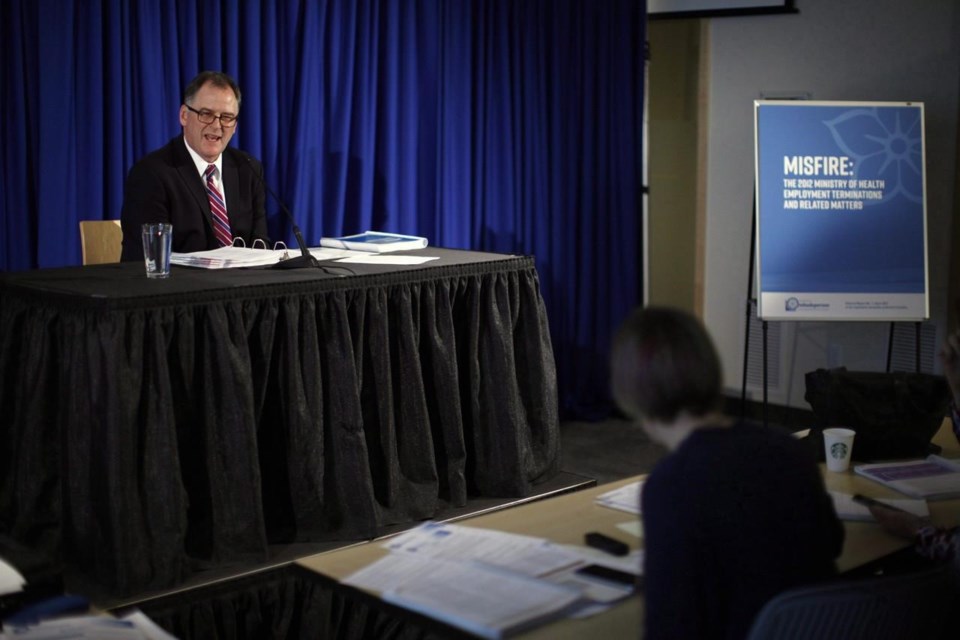VICTORIA — A report by British Columbia's ombudsperson suggests a decades-old portion of the Transportation Act has holes big enough for a logging truck to drive through.
Jay Chalke says in the report that it's "unjust" that a section in the act allows some roads on private property to be automatically considered public if government money is spent on maintenance, without the property owner’s knowledge or consent.
A report from Chalke's office highlights cases where an owner was surprised that she couldn't stop logging trucks from using the road through her property, while another thought he was using a public road to get to his property, but when it was blocked the Transportation Ministry said it couldn't help because the road was private.
The report says property owners are not compensated for the reduction in the size of their property when public roads are created and there's no easy way to determine a road's ownership.
Chalke's report makes seven recommendations, including that the law be amended to prevent new roads under the act and that a public notice system be created.
A response from the Transportation Ministry says it agrees with many of the recommendations but adds that creating a publicly accessible registry would require more funding and could take a decade.
The ministry says the section is little used and if a road is needed in the public interest it "takes steps to acquire the necessary highway tenure through negotiations with the owner and legal survey.
"In cases where the owners are unwilling to dedicate the road as public highway, then the matter may be referred to the courts."
Chalke's findings echo a similar report made by the ombudsman's office in 1985, which also remain unaddressed.
This report by The Canadian Press was first published March 5, 2024.
The Canadian Press




